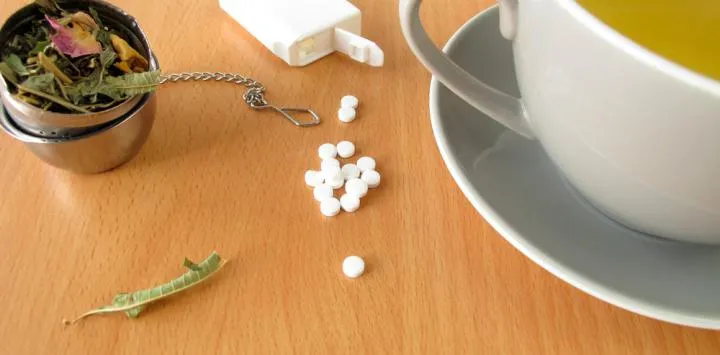Can the consumption of sweeteners increase the risk of diabetes?The controversy is served, as an investigation presented last week in Lisbon on the occasion of the annual meeting of the European Association for the study of diabetes assured that artificial sweeteners can change the body's response to glucose when consumed in large quantities, and that could increase the risk of developing type 2 diabetes.
However, from the employer of sweeteners, the International Sweeteners Association have come to the passage of this research with an informative note in which it is ensured that low -calorie sweeteners do not affect the control of glucose or increase the risk of diabetes.
Two positions found that we capture below as they have reached the writing of Channel Diabetes and for our readers to take their own conclusions.
Research version presented at the EASD by Professor Richard Young
Previous studies have indicated that the usual consumption of high amounts of non -caloric artificial sweeteners is associated with a greater risk of developing type 2 diabetes, however it is not known why this occurs.
This recent study was conducted by the associated professor Richard Young of the School of Medicine of Adelaide and several research colleagues, with the aim of knowing the effects of the consumption of large amounts of artificial sweeteners and the body's response to glucose.
The researchers recruited 27 healthy subjects who were given an amount of two different non-caloric artificial edulcorants (sucralose and acesulfame-k) equivalent to drinking 1.5 l of dietary drink per day, or an inactive placebo.These were consumed in the form of capsules taken three times a day before meals during the period of two weeks.
At the end of the two weeks, the subjects had their response to the glucose test, examining the glucose in absorption, plasma glucose and insulin levels and intestinal peptides.
The study determined that only 2 weeks of supplementation of non -caloric artificial sweeteners was sufficient to increase glucose absorption and increase magnitude as a result of blood glucose.
Although more research is necessary, the authors conclude that “this study supports the concept that sweeteners could reduce the body control of sugar levels.It highlights the potential of exaggerated levels of post-comparative glucose in the usual users of non-caloric artificial sweeteners, which could predispose them to the development of type 2 diabetes ”.
Version of the International Association of Educaters (ISA)
The conclusions of the study presented at the Annual Meeting of the European Association for the Study of Diabetes (EASD) conducted by Young et al.They are not backed by various previous studies of the same research group
In response to the press release [1] sent on the occasion of the presentation of a new study by Young et al.At the 53rd Annual Meeting of the European Association for the Study of Diabetes (EASD), the International Association of Edulcorants (ISA) wantsThey show that low -calorie sweeteners do not affect glucose control.
Surprisingly, this press release omitted to inform the results of a large number of studies published by those same authors [2], which did not systematically observe any impact of low -calorie sweeteners in the regulation of blood glucose.Likewise, the set of scientific evidence in duly designed humans supportsThat low -calorie sweeteners do not negatively affect glycemic control in healthy or diabetic people, for example, affecting the total insulin secretion, glucose absorption and/or use of glucose by direct effect or through the effect on incredits (intestinal hormones). [3]
In fact, the benefits of low -calorie sweeteners in postprandial glucose are also recognized in a statement of healthy properties authorized in Europe, in relation to the scientific opinion of the European Food Security Authority (EFSA) [4]: “TheFood consumption with low -calorie sweeteners instead of sugar contributes to a lower increase in blood glucose after intake, compared to foods that contain sugar. ”
Low calorie sweeteners cannot increase the risk of diabetes, and on the contrary, when used in substitution of sugar, they can be a useful strategy in diabetic people for which glycemic control is fundamental.This conforms to the fact that low -calorie sweeteners do not provide carbohydrates to food.In the 2017 guidelines 'Standards of Medical Care in Diabetes' ('Diabetes Medical Care Standards') [5], the American Diabetes Association supports that “Non -nutritious sweeteners have the ability to reduce global calorie intakeand carbohydrates. ”
For diabetic people, low -calorie sweeteners used in food and drinks, as well as table sweeteners, as part of healthy eating, they represent an option that can help in glucose control [6] and offer greater food optionsby providing the pleasure of sweet taste without raising blood glucose.
For more information about low -calorie sweeteners, please visit www.sweeteners.org or contact the ISA Secretariat by clicking here.


